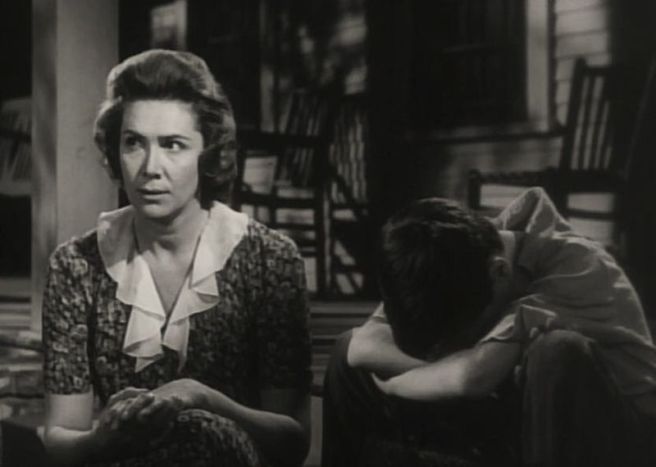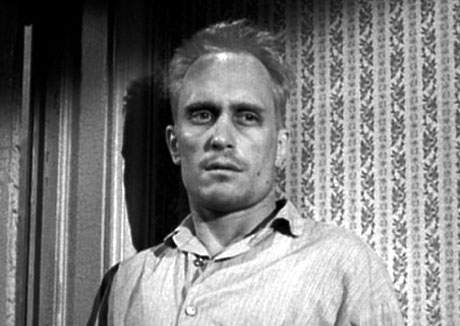To Kill a Mockingbird was on TV last night, and I am (not) embarrassed to admit that I was an utterly broken, weeping mess by the end. I’ve probably watched the movie dozens of times; I watched it well before I ever read the book—before I could even read—since it was a favorite in my household growing up. As much as I have always been touched by this movie (and later by the book), it felt especially profound this time around. Maybe it’s because I have a son who is just slightly younger than narrator Scout Finch. Maybe it’s because I feel like our world is being overtaken by the Bob Ewells and Mayella Ewells of the world and that we have a shortage of Atticus Finches. Whatever the case, I felt confident last night that I was watching a perfect American story.

Of course so much of the story’s power comes from the fact that it is told through the eyes of a child. And so we get to see the world that way too. The world seems big and mysterious and scary and exciting. I’d argue that the movie does an even better job capturing this quality than the book does. And this tone is extra poignant when contrasted against the ugliness of racism in 1930s Alabama. Scenes like the one when Scout, Jem, and Dill sneak off to see Atticus watching over Tom Robinson’s jail cell are so powerful because they bring together these two themes—childish innocence and raw hatred—when they witness the lynch mob. Scout’s innocence wins out when she notices that one of the men is the father of a classmate. “Tell Walter hey,” she says, and her guileless humanity breaks through the hatred, causing the mob to disperse.

The heartbreak of injustice continues with the trial of Tom Robinson, wrongly accused of beating and raping a white woman, Mayella Ewell. Atticus’s children watch the trial from the segregated balcony of the courthouse, where they get an education on the injustice of the US legal system. What I find so striking is the contrast between the court’s mishandling of Tom Robinson’s case and the later justice found outside of the courtroom; justice only comes when Boo Radley kills Bob Ewell (Mayella’s father) at the end of the story. It is behind the scenes and outside of the realm of the legal system where justice is finally meted out. So for all of Atticus’s emphasis on doing what is right and following the rules, there is a feeling of futility. But in spite of this, there is a sense that there is still goodness at work in the world that can win out if given the chance.

When I watched the movie as a kid, Atticus seemed like such a strong, unwavering character to me. He seemed like a man who absolutely knew what was right and didn’t falter. Now, as an adult and as a parent, I’m struck that Atticus’s was afraid, and it makes his strength that much more compelling. You can see it competing with his resolve in nearly every scene. When the mob comes to Tom Robinson’s jail cell, he says all of the right things, but he seems afraid, which of course is utterly realistic. When his children show up there is even more fear—fear for their physical safety and fear for their loss of innocence. How do you explain what’s going on to a small child? After giving his closing remarks in the trial of Tom Robinson, he seems defeated and sad. He has done his best but knows that his best in this skewed system is not enough to save his client. And then there is the obvious fear he feels when his children are attacked on Halloween. The world around them, defined by horrifying racism, the suffering of poverty, and the threats of bad people is so at odds with the goodness he tries to teach his children.

Boo is where the story’s innocence and world-weariness converge, and I’d argue that he’s one of the most compelling characters in all literature. He is both an innocent himself and a perceived threat. He is the subject of the children’s fear while also being their guardian. Importantly, he is a recluse, removed from society, but is nonetheless the story’s ultimate source of justice. Where Atticus devoted his life to working for justice in the public eye and was unable to achieve it for Tom Robinson, Boo saves the Finch children and gives Bob Ewell the justice he deserves. The story says to me that justice is not necessarily possible through the proper channels. It is how we behave away from the eye of the public that counts.
The racism of the story and the inability of the court system to fight racism is altogether too relevant to America in 2018. I think of the ways our court system has failed black men who have been murdered at the hands of the law, from Philando Castile to Freddie Gray. I think of the white nationalist mob in Charlottesville and incident after incident of ignorant people threatening others because they are not white or English speaking. You hear the refrains “Speak American” and “Go back to Africa.” It’s sickening.
Now more than ever we need reminders of the threats posed by ignorance and racism. We need to try to view the world with the childlike wonder of Scout and Jem. To remain puzzled and heartbroken by injustice rather than hardened to it and cynical. To be hopeful and courageous. We need Atticus Finches and Boo Radleys to do what is right, even when doing what is right feels futile. As Atticus says, “Real courage is. . . . when you know you’re licked before you begin, but you begin anyway and see it through no matter what.”

Thanks so much for taking the time to write this wonderful “take” on the movie. I have taught this book every year of my fifteen year teaching tenure. You’ll be happy to know that my readers, regardless of their fluency/comprehension level, love this book. They get so frustrated, especially when we begin to dissect the Tom Robinson trial and the ways in which Bob Ewell attempts to enact his revenge.
As a deeper dive into this topic, you should check out the documentary Hey, Boo: Harper Lee and ‘To Kill a Mockingbird’. It does a great job contextualizing everything that was happening in society around the time of the writing/publication of the book and movie.
Let’s hope no one from the Ewell clan finds your post and starts trolling.
LikeLike
Thanks for reading! I’ll definitely check out the documentary at some point. It’ll be interesting, especially in light of the controversy surrounding Go Set a Watchman, which I’m yet to read . . . and I honestly don’t think I really want to read it given how much I love To Kill a Mockingbird. I don’t want anything to spoil that for me.
LikeLike